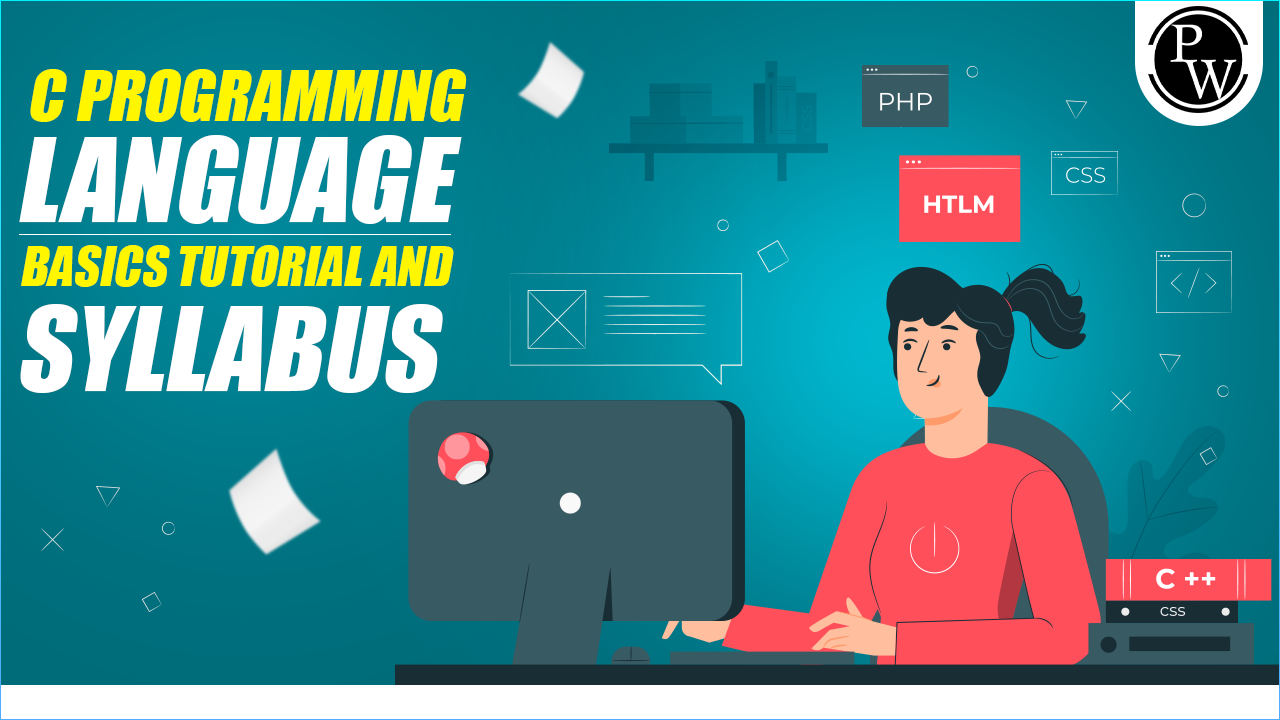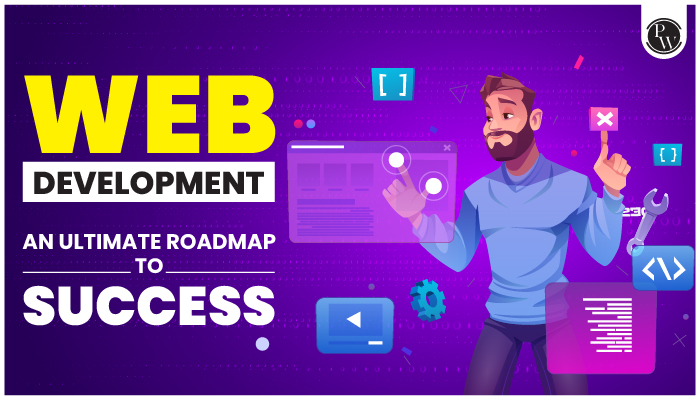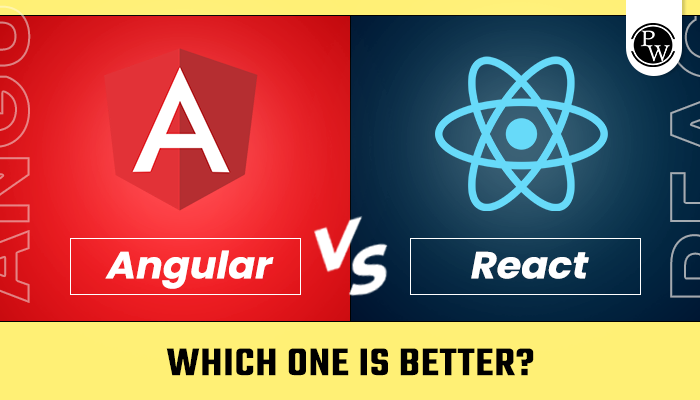PhysicsWallah provides a complete C Programming Foundation course for beginners as well as experienced candidates. This course covers the entire C syllabus with proper recorded lectures and experienced teaching faculties.
C programming is the first step for most beginners to start learning programming. C language is also called the mother of all programming languages as it has existed for a long time, and most of the latest programming languages use its concept in their syntax. Learning C programming language is a step-by-step process that is fun if we are under good guidance.
Let us know the critical C syllabus in this article. Candidates will also get the C syllabus pdf in the article below. Read the complete article to learn about the important topics that will be covered in the C Programming Foundation course.
C Syllabus Foundation
Candidates can check out the entire syllabus that will be covered in the C Programming Foundation course. Check out the table below for more details.
| Important Topics C Syllabus | |
| Name of Lesson | Topic |
| 1 | Introduction to Programming |
| 2 | Program and Programming |
| 3 | Programming Languages |
| 4 | Types of Softwares |
| 5 | Operating Systems |
| 6 | DOS Commands |
| 7 | Basic Linux Commands and VI Editor |
| 8 | Compiler, Interpreter, Loader, and Linker |
| Fundamentals in C | |
| 1 | History of C langauge |
| 2 | A Simple C Program |
| 3 | Program Execution Phases |
| 4 | Backslash Character Constants |
| 5 | Character Set |
| 6 | Constants |
| 7 | Number Systems |
| 8 | Format Specifiers |
| 9 | Identifiers |
| 10 | Keywords |
| 11 | Variables |
| 12 | Data Types |
| 13 | Declaration of Variable |
| 14 | Assigning Values to Variables |
| 15 | Initialization |
| 16 | Comments |
| 17 | Const Qualifier |
| 18 | Basic Structure of a ‘C’ Program |
| 19 | Programming Examples |
| Operators and Expressions | |
| 1 | Arithmetic Operators |
| 2 | Increment and Decrement Operators |
| 3 | Relational Operators |
| 4 | Logical Operators |
| 5 | Bitwise Operators |
| 6 | Assignment Operators |
| 7 | Conditional Operator |
| 8 | Size of Operator |
| 9 | Comma Operator |
| 10 | Type Casting Operator |
| 11 | Other Operators |
| 12 | Precedence and Order of Evaluation |
| 13 | Programming Examples |
| Data Types | |
| 1 | Format Specifiers |
| 2 | Dealing with Each Data Type |
| 3 | Memory Representation of Each Type |
| 4 | Programming Examples |
| 5 | Modifiers |
| Input-Output Library Functions | |
| 1 | Unformatted I-O Functions |
| 2 | Single Character Input-Output |
| 3 | String Input-Output |
| 4 | Formatted I-O Functions |
| 5 | printf () Width Specifier |
| 6 | scanf () Width Specifier |
| 7 | Programming Examples |
| Conditional Statements | |
| 1 | if |
| 2 | if-else |
| 3 | Nested if-else |
| 4 | else-if Ladder |
| 5 | Multiple Branching Control Statement |
| 6 | switch-case |
| 7 | Loop Control Statements |
| 8 | while |
| 9 | do-while |
| 10 | for |
| 11 | Nested Loops |
| 12 | Jump Control Statements |
| 13 | break |
| 14 | continue |
| 15 | goto |
| 16 | exit |
| 17 | return |
| 18 | Programming Examples |
| Function in C language | |
| 1 | What is Function? |
| 2 | Why Function? |
| 3 | Advantages of Using Functions |
| 4 | Function Prototype |
| 5 | Defining a Function |
| 6 | Calling a Function |
| 7 | Return Statement |
| 8 | Types of Functions |
| 9 | Recursion |
| 10 | Nested Functions |
| 11 | main() Function |
| 12 | Library Function |
| 13 | Local and Global Variables |
| 14 | Programming Examples |
| Storage Class | |
| 1 | Scoping Rules |
| 2 | Dealing with All Storage Classes |
| 3 | Programming Examples |
| 4 | Types of Storage Class |
| Pointer in C Programming | |
| 1 | Definition of Pointer |
| 2 | Declaration of Pointer Variables |
| 3 | Assigning Address to Pointer |
| 4 | Variables |
| 5 | Dereferencing Pointer Variables |
| 6 | Pointer to Pointer |
| 7 | Pointer Arithmetic |
| 8 | Pointer Comparisons |
| 9 | Dereference and Increment Pointer |
| 10 | Programming Examples |
| Pointer and Function ( Passing Parameter Techniques) | |
| 1 | Call by Value, Call by Address |
| 2 | Using Pointers as Arguments |
| 3 | Function Returning Value |
| 4 | Functions Returning Address |
| 5 | Function Returning Pointers |
| 6 | Dangling Pointer |
| 7 | Pointer to a Function |
| 8 | Calling a Function Through Function Pointer |
| 9 | Passing a Function’s Address as an Argument |
| 10 | Functions with Variable Number of Arguments |
| 11 | Programming Examples |
| Array in C language | |
| 1 | Declaration of 1D Arrays |
| 2 | Initialization of 1D Arrays |
| 3 | Accessing Elements of 1D Arrays |
| 4 | Reading and Displaying Elements |
| 5 | Two Dimensional Arrays |
| 6 | Declaration of 2D Arrays |
| 7 | Initialization of 2D Arrays |
| 8 | Accessing Elements of 2D Arrays |
| 9 | Reading and Displaying Elements |
| 10 | Programming Examples |
| Pointer and One Dimensional Arrays | |
| 1 | Subscripting Pointer Variables |
| 2 | Pointer to an Array |
| 3 | Array of Pointers |
| 4 | Pointers and Two Dimensional Arrays |
| 5 | Subscripting Pointer to an Array |
| 6 | Programming Examples |
| Array and Function | |
| 1 | 1D Array and Function |
| 2 | Passing Individual Array Elements to a Function |
| 3 | Passing Individual Array Elements Address to a Function |
| 4 | Passing Whole 1D Array to a Function |
| 5 | 2D Array and Function |
| 6 | Passing Individual Array Elements to a Function |
| 7 | Passing Individual Array Elements Address to a Function |
| 8 | Passing Whole 2D Array to a Function |
| 9 | Using Arrays of Function Pointer |
| 10 | Programming Examples |
| Dynamic Memory Allocation | |
| 1 | calloc() |
| 2 | realloc() |
| 3 | free() |
| 4 | Malloc() |
| 5 | Memory Leak |
| 6 | Dynamic 1D and 2D Arrays |
| 7 | Core Dump |
| 8 | Programming Examples |
| Strings in C Programming language | |
| 1 | Initializing Strings |
| 2 | Reading Strings |
| 3 | Displaying Strings |
| 4 | The %s Format Specifier |
| 5 | The gets() and puts() Functions |
| 6 | String Handling Functions |
| 7 | String Pointers |
| 8 | Two-Dimensional Character Arrays or Array of Strings |
| 9 | Array of Pointers to Strings |
| 10 | Programming Examples |
| Command Line Arguments | |
| 1 | What is Command Prompt? |
| 2 | What are Command Line Arguments? |
| 3 | Programs Using Command Line |
| Preprocessor in C | |
| 1 | What is Preprocessing? |
| 2 | Macro Expansions |
| 3 | File Inclusions |
| 4 | Conditional Compilation |
| 5 | Programming Examples |
| Structure in C | |
| 1 | Why is Structure Used? |
| 2 | What is Structure? |
| 3 | Advantages of Structures |
| 4 | Defining a Structure |
| 5 | Declaration of Structure Variables |
| 6 | Initialization of Structure Variables |
| 7 | Accessing Structure Members |
| 8 | Storage of Structures in Memory |
| 9 | Size of Structures |
| 10 | Reading and Displaying Structure Variables |
| 11 | Assignment of Structure Variables |
| 12 | Pointers to Structures |
| 13 | Array of Structures |
| 14 | Arrays Within Structures |
| 15 | Nested Structures |
| 16 | Self-Referential Structures |
| 17 | Programming Examples |
| Structure and Function in C | |
| 1 | Passing Structure Member to a Function |
| 2 | Passing Structure Variable to a Function |
| 3 | Passing Structure Variable Address to a Function |
| 4 | Passing Array of Structure to a Function |
| 5 | Returning a Structure Variable from Function |
| 6 | Returning a Structure Variable Address from Function |
| 7 | Returning Structure Variable from a Function |
| 8 | Programming Examples |
| Union and Enumeration and Typedef | |
| 1 | What are Unions? |
| 2 | Structures Versus Unions |
| 3 | Working with Unions |
| 4 | Initializing Unions |
| 5 | Advantages of Unions |
| 6 | Enum Keyword |
| 7 | Typedef Keyword |
| 8 | Programming Examples |
| File Handling in C | |
| 1 | Using Files in C |
| 2 | Buffer and Streams |
| 3 | Working with Text Files and Binary |
| 4 | Files |
| 5 | File Operations Using Standard Library and System Calls |
| 6 | File Management I/O Functions |
| 7 | Random Access Files |
| 8 | Programming Examples |
C Programming Foundation Syllabus PDF
Candidates can enroll in the C Foundation course provided by PhysicsWallah, which contains beginner-friendly, well-explained lectures that will help them learn C programming. Our C syllabus courses are well structured and covered by the top faculties with experience in programming.
C Syllabus PDF (Active)
| Recommended Reads | |
| Java Vs C++ Vs Python | Java or C++ which is better |
| Linear Search in C | what are arrays in C? |
C Programming Foundation Syllabys FAQs
Q1. How can we enroll in the C Foundation Course?
Ans: You can enroll in the C foundation course by checking the official website of PW. Check out the direct link in the article.
Q2. What are the topics covered in the C programming syllabus?
Ans: Check out this article for important topics covered in the C programming syllabus.
Q3. Can I access the C programming foundation course in offline mode?
Ans: Yes, you can easily download the recorded lectures and watch them offline whenever you want.
Q4. What will I achieve after completing this course?
Ans: By the end of this course, you will gain a strong foundation in C programming, and you will be able to write C programs and debug them easily.




